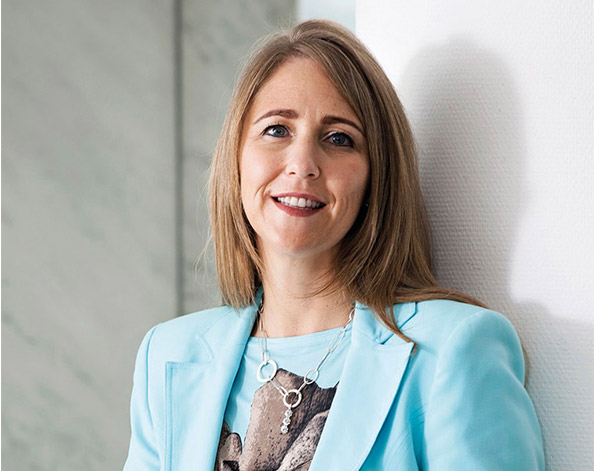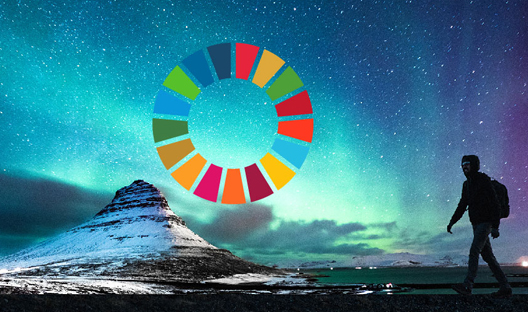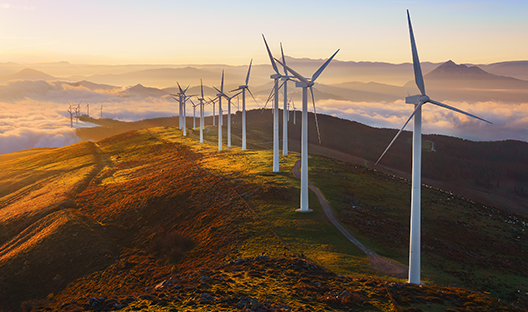Over the past few years the concept of corporate sustainability has attracted much attention and research. Digital pages have been filled with a new nomenclature, defining the broad concept of sustainability as well the underlying principles.
But no matter what it is called, the concept of sustainability is not new. While much attention has recently been placed on the environmental, social and governance (ESG) wave, sustainable investment has been around for decades. Investec has been on this journey since the company’s inception, with our first sustainability report published in 2002, aptly named “Our journey to sustainability”. This was our first publication incorporating the group’s environmental efforts in addition to the educational and entrepreneurial philanthropy activities that had always existed.
Caring for society is embedded in our DNA, with a ‘people first’ mantra deeply rooted in our values and culture. But sustainability incorporates more than just the people element. It broadens our consciousness to consider that people cannot exist without a healthy and thriving natural environment. The elements of profit, people and planet are the key building blocks of a sustainable existence.
After the 2008 financial crisis, when attention was given to the question of how to encourage more long-term investment thinking, the concept of sustainability was highlighted on policymakers’ agendas.
The Paris Climate Agreement and increased civil society attention directed towards addressing climate change saw an increased drive to incorporate climate change considerations in business processes.
Ethical or responsible investing was considered as a specialisation or a niche in the market at the time, but has seen increased adoption since. What was considered a fad for more than two decades has now increasingly become mainstream.
As we enter an era of stakeholder capitalism, the CEOs of the future want their companies to be recognised as a force for good. This means they need to acknowledge all stakeholders and focus on social and environmental value in addition to financial returns.
Who will finance sustainable development?
The theme for the 2020 World Economic Forum Annual Meeting was “Stakeholders for a cohesive and sustainable world”. While the notion of purpose beyond profit is not a new one, there was an immense focus on sustainability at this year’s gathering of the top leaders of the world. This is a groundswell that has been gathering for many years. Climate change and environmental issues are now identified as the top five risks to business in the next decade.
But who is going to finance this social and environmental change? We cannot rely on governments alone, especially after Covid-19 as they are burdened with outsized debt. According to the United Nations Secretary-General, António Guterres, “we have to mobilise the private sector, it is 75% of the global GDP. Moving forward, collaboration with business is crucial when it comes to fighting climate change; but also, to meet sustainable development goals, eradicate all extreme poverty by 2030, and we’re not on track on this”.
The climate finance gap is estimated at between US$2.5 trillion and US$4.8 trillion, and current investment falls significantly short of this. The financial sector has a significant contribution to make in putting greenhouse gas emissions on a trajectory in line with the Paris Agreement and accelerating the shift to a low-carbon economy. Banks are under particular pressure to divest from fossil fuels and increase their financing to renewables and clean energy.

As we enter an era of stakeholder capitalism, the CEOs of the future want their companies to be recognised as a force for good.
Banks are also under pressure from prudential regulation which is starting to pay attention to climate-related financial instability. A report by Finance Watch in June this year recommends that banks will need to integrate climate-related risks into their capital requirements.
This further promotes the Financial Stability Board’s recommendations in terms of the Taskforce for Climate-related Financial Disclosures (TCFD). The result is that it will become much more expensive for banks to finance fossil fuels given the higher risk weighting that will be assigned to these assets.
Investec released its first TCFD report this year, which is a significant step in the right direction to addressing climate action. But there is still an immense amount of work to do to appropriately calculate the emissions from our loans and investments and to measure the climate-related impacts of our portfolios.
WATCH VIDEO: Investec's Fani Titi and the JSE's Leila Fourie on financing sustainable development
It is possible to do well by doing good
Initially, investors and clients in general were reluctant to embrace the concept of Environment Social Governance (ESG), as they thought it meant they had to forego financial returns. But as the ESG landscape has evolved, investors are realising that ESG issues have financial implications and that ESG-focused companies have generally outperformed their industry peers.
A survey of retail investors carried out on behalf of Investec in April 2020 revealed that 51% of respondents felt that sustainable investing was important to them.
In response, Investec’s Structured Products team (that is part of our bank) launched the UK’s first retail ESG-linked deposit plan which is tied to the FTSE4Good UK 50, an index made up of the largest 50 companies in the FTSE which also meet defined ESG criteria.
By applying ESG principles to equity investments through our wealth management business, we are better able to identify and measure risks to the ability of corporates to sustainably generate returns on invested capital above their costs of capital.
READ MORE: a climate conversation with Lord Mark Malloch-Brown
While we need to be mindful of these risks and take full responsibility for our activities, we also need to embrace the significant opportunities that financing a more sustainable world presents.
The United Nations Sustainable Development Goals (SDGs) could open up an estimated US$12 trillion in market opportunities, according to the Better Business Better World report by the Business & Sustainable Development Commission.
A core driver of Investec’s sustainability strategy is our commitment to the SDGs. We are already less than 10 years away from the 2030 deadline which means we urgently need to accelerate action.

Sustainable Development Goals: a North Star for the future
The 17 Sustainable Development Goals (SDGs), otherwise referred to as the “global goals for sustainable development”, are the roadmap to the future we need to build.
Partnering with our clients in the bank and incentivising them to be more responsible and impactful is a critical element of our sustainability focus.
For example, the Investec Fund Finance team recently did the first European mid-market ESG-linked facility to InvestIndustrial, a leading European investment group.
The €600 million facility offers reduced interest payments when specific ESG goals – in areas such as environment, gender diversity and governance – are met. Any interest cost savings will be ring-fenced by InvestIndustrial for investments in carbon reduction initiatives, including the continued development of its portfolio of nature-based carbon reduction projects.
ESG investing is coming to the fore
According to JP Morgan Global Equity Research, assets in ESG exchange-traded funds (ETFs) more than doubled over the past year, to US$80 billion. JP Morgan also forecasts that the broadly defined ESG market is expected to reach US$45 trillion in assets under management by the end of 2020.
Furthermore, we need to prepare for what is commonly being termed ‘the great wealth transfer’ which will see the handover of US$12 trillion of wealth to the next generation, who are notably more conscious of sustainable investment and social impact.
Daily, we are seeing blended finance solutions channelling capital to the low carbon economy and social impact from green, blue and rainbow bonds (ie bonds linked to environment/climate, water and the SDGs) to green loans and ESG-linked loans.
Sustainability is not something we merely pay lip service to. Our sustainability performance has been consistently recognised externally as we remain in the top 15% in our industry in the Dow Jones Sustainability Index, and top 2% in the financial sector for the MSCI ESG rankings, amongst many others.
While it makes us proud to get external recognition, we are always mindful that this is still a journey and we continually need to strive for more when it comes to our financial performance and socio-economic impact.
The success of our business requires a distinctly focused and deliberate approach to all sustainability considerations acknowledging a deeply held belief that we live in society, not off it.
Accordingly, we will continue to actively finance clients who share this aspiration to be a force for good and to find innovative ways to finance a cleaner, healthier more inclusive and sustainable world.
Sustainability is not a passing fad, it is here to stay and where a corporate’s strategy is not aligned, there is increased risk that it may not see out the next decade.
This article was originally published by the Investec Research Institute.

Responsible Investing and Sustainability at Investec Wealth & Investment
As Sustainability is core to our fundamental investment approach, we have integrated ESG considerations into our investment decision making and broader investment process.




